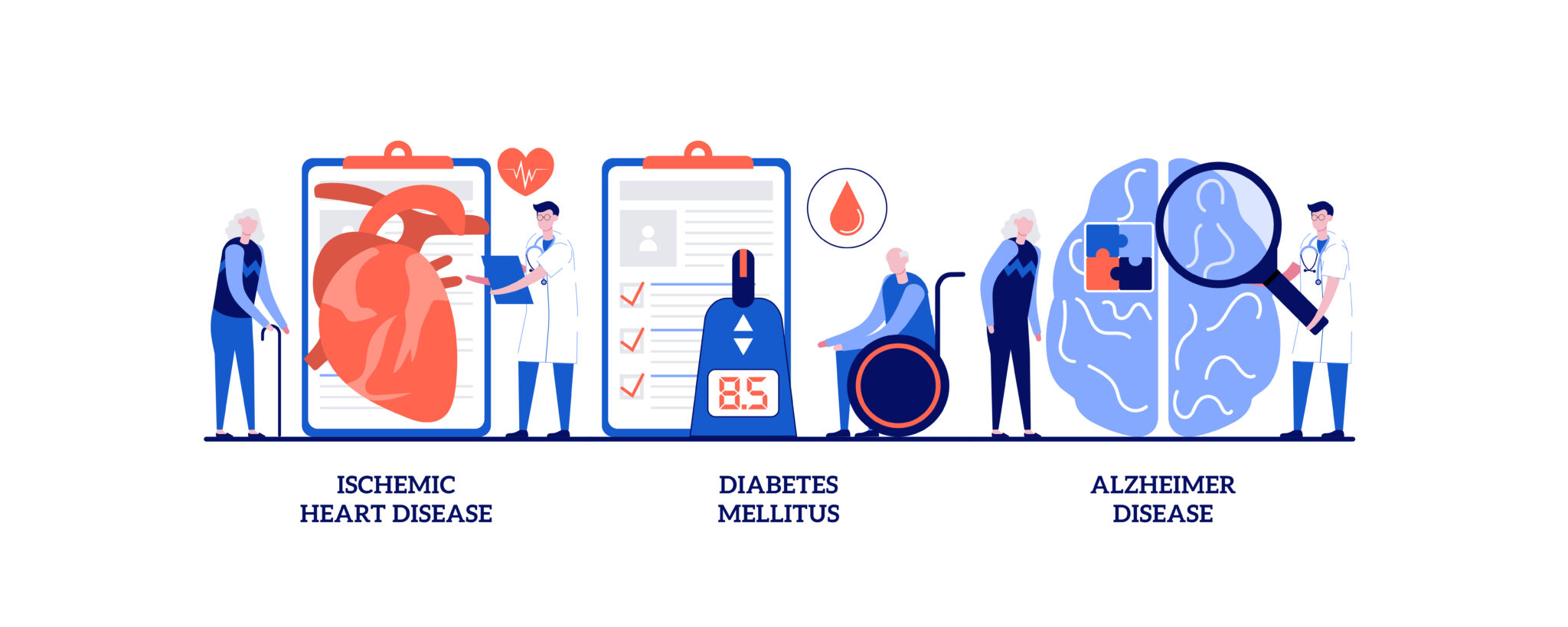Summary: Severe memory decline due to aging and dementia is a major health concern among older adults. The incidence of Alzheimer’s is increasing, and it is one of the leading causes of mortality in the western world. Yet, very little is known about the etiology and pathogenesis of dementia. There are no known reliable early biomarkers or tests that could help predict the risk. Diabetes or insulin resistance is one of the known risk factors for dementia. A new population-based study shows that an oral glucose tolerance test may help predict the risk of memory decline over the long run. People with poor oral glucose tolerance tests are much more likely to suffer from episodic memory decline in old age.
Keywords: oral glucose tolerance test, OGTT, episodic memory decline, dementia, Alzheimer’s, insulin resistance
Introduction
Cognitive decline due to aging and diseases like Alzheimer’s are becoming a significant cause of disability in older adults. Nevertheless, unlike common belief, about 40% of cases of dementia can be either delayed or even prevented1. However, it is only possible if the risk of developing dementia later in life is identified early.
Regretfully, at present, there are no reliable markers or tests that could help predict the risk of dementia or Alzheimer’s later in life. Nevertheless, researchers know about numerous risk factors for dementia, like diabetes, depression, and even lifestyle choices like smoking.
Researchers are looking for tests with a high predictive value of decline in memory in later life. They are also exploring if some of the more commonly used tests may also help identify the risk. Thus, a person will have enough time to take measures, alter their lifestyle.
Episodic memory is about remembering important events in life and emotions related to it, like the first kiss, date of marriage, day of graduation, and so on. Certain forgetfulness occurs with aging. Nonetheless, it may also be a sign of something more severe like Alzheimer’s or other cause dementia.
Oral glucose tolerance test may help predict the risk
A study published in 2021 in the Diabetes Care journal provides a clue that one of the commonly used tests in diabetes may help predict memory issues later in life2.
The two most common tests used to diagnose diabetes are fasting plasma glucose (FPG) and oral glucose tolerance tests (OGTT). OGTT is especially good in identifying diabetes early or when the FPG test fails to confirm the diagnosis.
In OGTT, doctors would generally give a person a sugary drink rich in glucose, and then they will test glucose levels after 2-hours. If the test shows blood glucose above 200 mg/dl, then a person has diabetes. Whereas values between 140 mg/dl to 200 mg/dl may indicate prediabetes3.
This latest study is based on the data collected during the Finnish population-based Health 2000 Survey and follow-up data collected after 10-years in the Health 2011 study2.
In the study, researchers analyzed the data of memory tests of 961 individuals who underwent OGTT between 2001 and 2002. Analysis of the data showed that after 10 years, those who had poorer results of OGTT also had a greater decline in episodic memory after 10 years. Thus, confirming that even a simple test like OGTT may help establish the long-term risk of memory-related issues.
Do these findings indicate that OGTT may help predict Alzheimer’s risk?
Well, not essentially, as the study did not look into this particular aspect. Further, it is known that diabetes is one of the risk factors for poor memory in later life, and it may not necessarily indicate a greater risk of dementia4.
Nonetheless, it has a certain value. There is a need to do more studies to understand if OGTT may help predict the risk of more severe memory issues or dementia in the long run. Further, follow-up studies are needed to establish if poor OGTT tests early in life predict a greater risk of Alzheimer’s later in life or not.
Nonetheless, it does confirm that the risk of memory decline is greater in people with poor OGTT tests. It means that individuals with higher values of the OGTT test need to pay greater attention to their brain health, which may involve maintaining blood sugar levels, giving up smoking, staying physically active, improving sleep quality. Measures taken early may help reduce the risk of dementia later in life.
References
1. The Truth About Aging and Dementia. Published September 8, 2021. Accessed October 2, 2021. https://www.cdc.gov/aging/publications/features/dementia-not-normal-aging.html
2. Toppala S, Ekblad LL, Viitanen M, Rinne JO, Jula A. Oral Glucose Tolerance Test Predicts Episodic Memory Decline: A 10-Year Population-Based Follow-up Study. Diabetes Care. Published online August 12, 2021. doi:10.2337/dc21-0042
3. Diagnosis | ADA. Accessed October 2, 2021. https://www.diabetes.org/a1c/diagnosis
4. Arvanitakis Z, Tatavarthy M, Bennett DA. The Relation of Diabetes to Memory Function. Curr Neurol Neurosci Rep. 2020;20(12):64. doi:10.1007/s11910-020-01085-9
Visit our website https://ideal.fit/ for detailed information.






